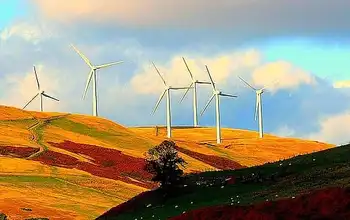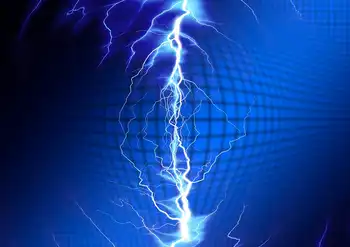PUC seeks lenient use of tougher utility law
HARRISBURG, PENNSYLVANIA - About 27,000 customers seeking help to manage their utility bills have been turned away this year by the state commission that was created to protect them.
On August 11, a majority of members on the state Public Utility Commission decided that enough was enough.
With a 3-2 vote, the PUC proposed a more lenient interpretation of a law governing utility shut-offs.
"Not just in Philadelphia, but statewide, we should not forsake justice for tens, or even hundreds of thousands of innocent, low- income people," commissioners James H. Cawley and Bill Shane wrote in their joint motion. Also voting with them was PUC Chairman Wendell F. Holland.
At issue is whether customers struggling to pay their gas, water or electricity bills should be entitled to payment plans negotiated through the PUC.
Under the current interpretation of the law known as Chapter 14, customers who already had agreed to payment plans with their utility companies could not be helped by the PUC unless their household income had dropped significantly.
The proposed interpretation would give all customers one "right of appeal" through the PUC, regardless of whether they already have a standing payment plan with a utility or experienced a drop in their income.
"It would be much more straightforward because all consumers would have the right to come to the PUC for one payment arrangement," said Mitch Miller, director of the PUC Bureau of Consumer Services. Of the 27,000 customers who have been turned away this year, he said, "the vast majority would have gotten a payment arrangement."
The proposed interpretation has been submitted for a 30-day public comment period, after which the PUC will decide which interpretation sticks.
Enacted last December at the urging of utility companies, Chapter 14 has made it easier for utilities to cut off service to customers who fall behind on their bills. As a result, utility shut-offs have skyrocketed statewide, nearly doubling since last year.
The law was intended to cut off freeloaders who repeatedly fail to pay their utility bills, despite an ability to pay, which raises costs for all consumers. It also was a salve for utility companies, which were dealing with increasing numbers of non-paying customers.
PUC members Kim Pizzingrilli and Terrance J. Fitzpatrick voted against the motion to ease the interpretation of the law, arguing that such a change would require a legislative amendment. Pizzingrilli urged utilities to be "pragmatic" when dealing with delinquent customers.
"I continue to encourage our regulated utilities... to educate our most vulnerable citizens regarding the programs available to assist them in meeting their payment obligations," Pizzingrilli wrote in the statement of dissent.
Michael Love, president of the Energy Association of Pennsylvania that represents gas and electric utilities, said he is open to a renewed discussion of the law, but he said the PUC understated the burden of uncollectible accounts on utility companies.
"We're going to be working with the commission to try to see what, if anything, should be done or could be done," he said. "The fact that we're going to revisit it is not a surprise to us. We're going to listen with open ears to understand what their concerns are."
State Consumer Advocate Irwin Popowsky applauded the motion, given the thousands of consumers who have been turned away by the PUC.
"I think the commission, to their credit, when they see what's happening, they know they have to respond," he said.
Related News

Scottish Wind Delivers Equivalent Of 98% Of Country’s October Electricity Demand
LONDON - New figures publicized by WWF Scotland have revealed that wind energy generated the equivalent of 98% of the country’s electricity demand in October, or enough electricity to power nearly 5 million homes across the country.
Scotland has regularly been highlighted as a global wind energy leader, and over the last few years has repeatedly reported record-breaking months for wind generation. Now, it’s all very well and good to say that Scottish wind delivered 98% of the country’s electricity demand, but the specifics are a little different — hence why WWF Scotland always refers to it as wind providing “the equivalent…




